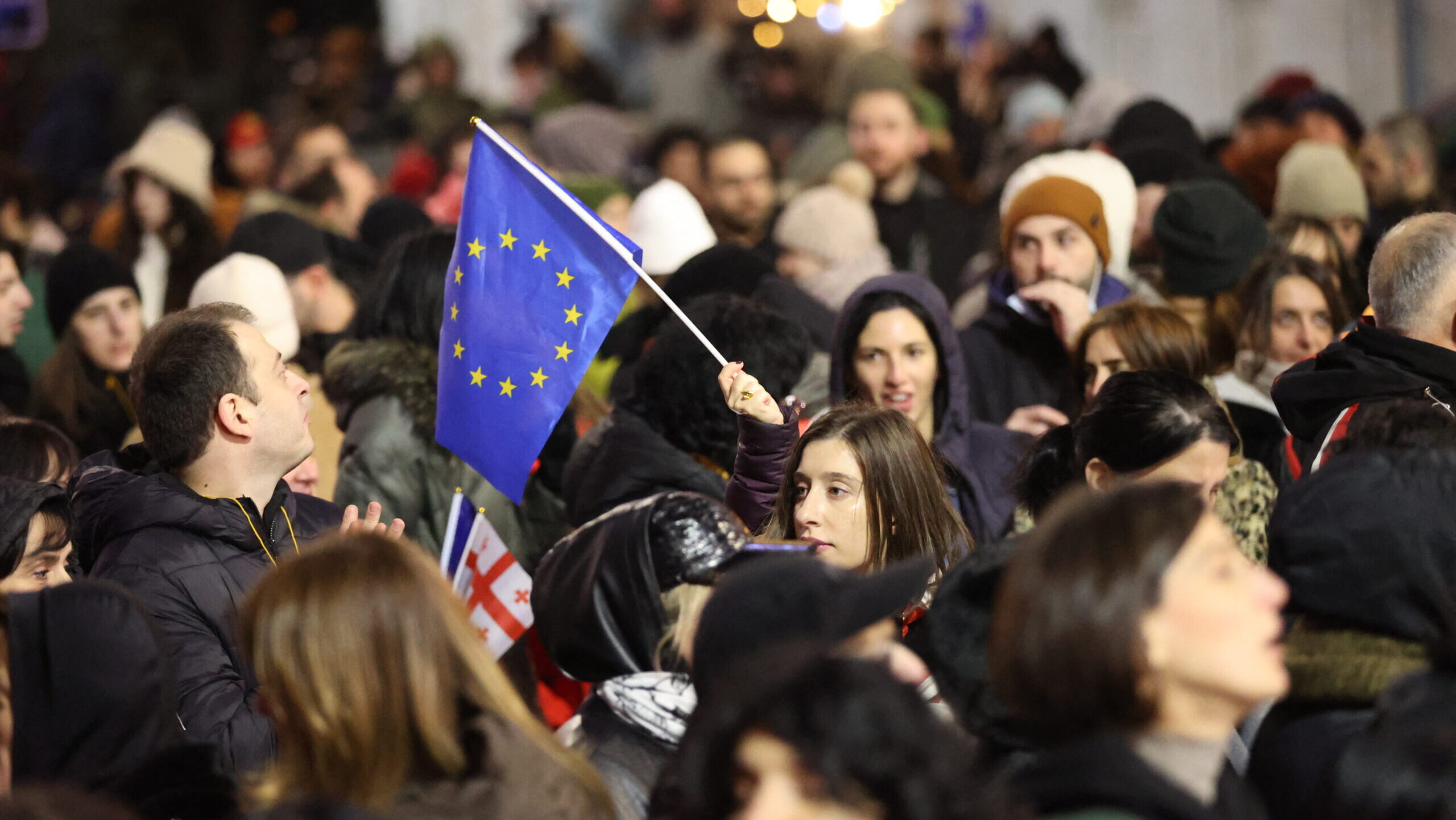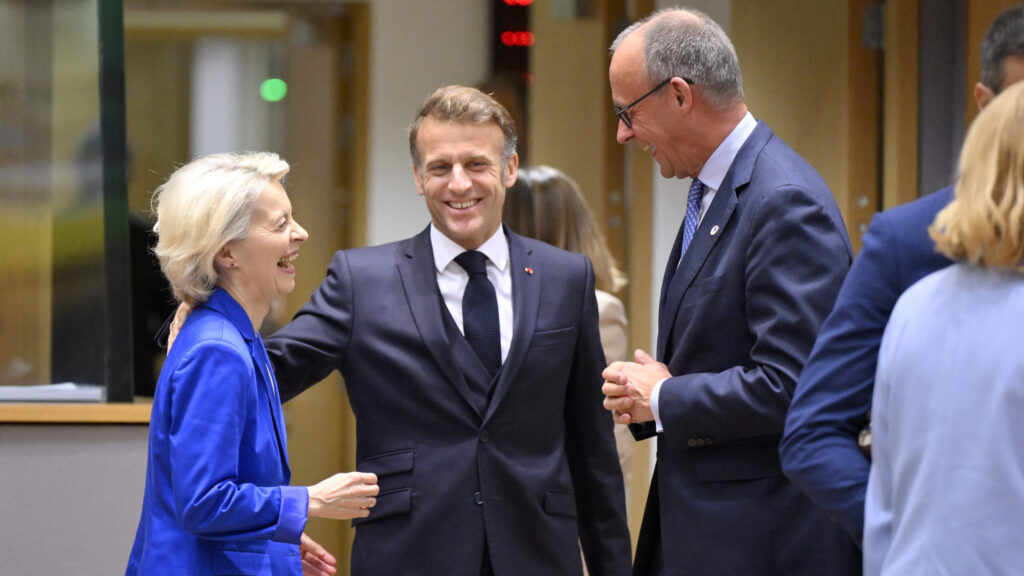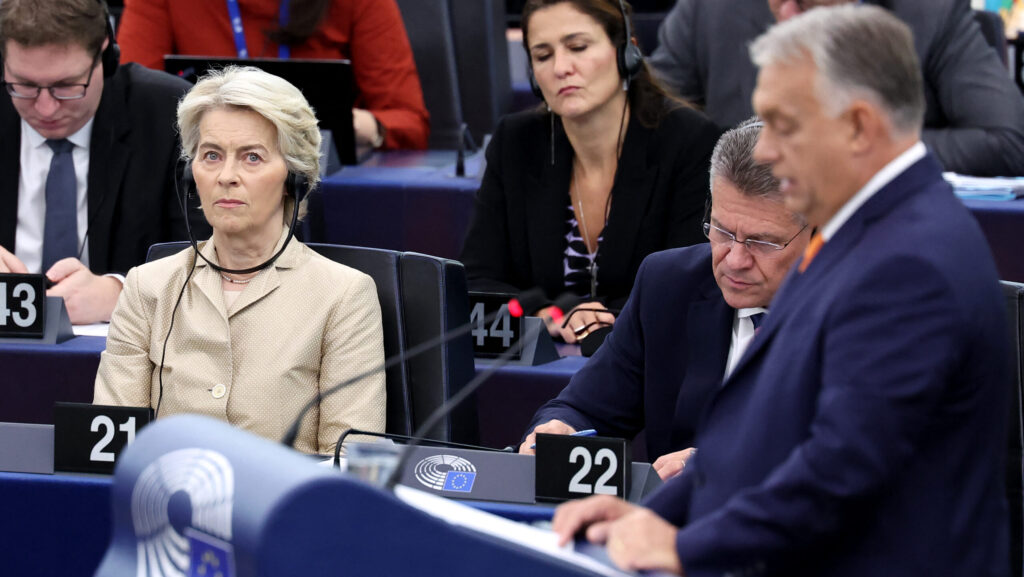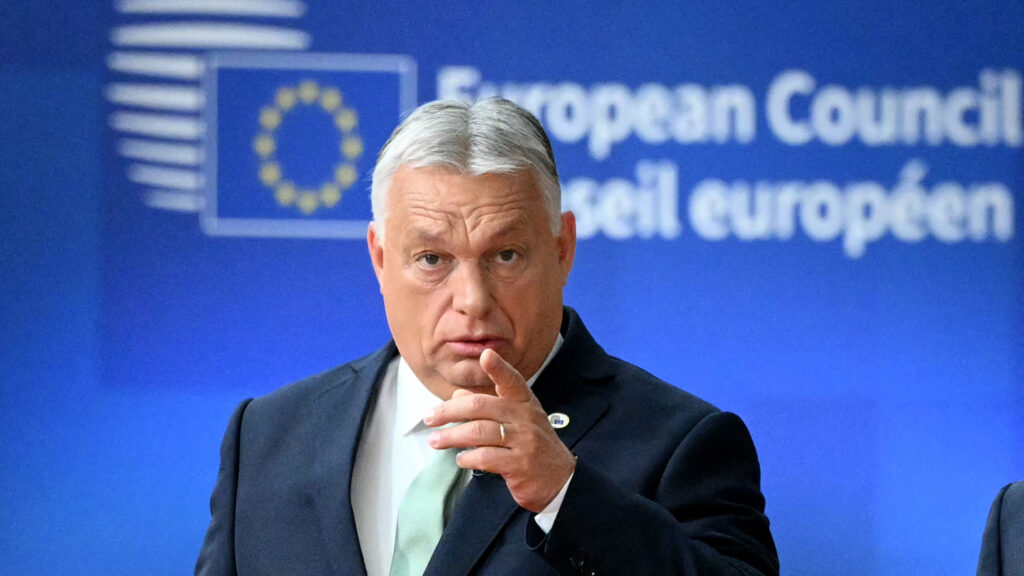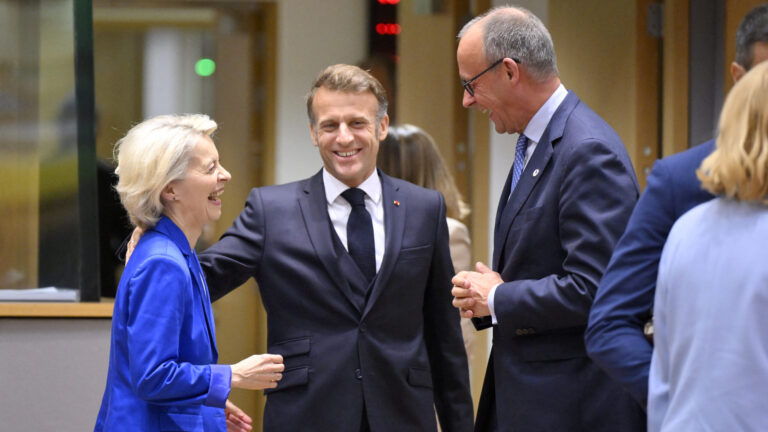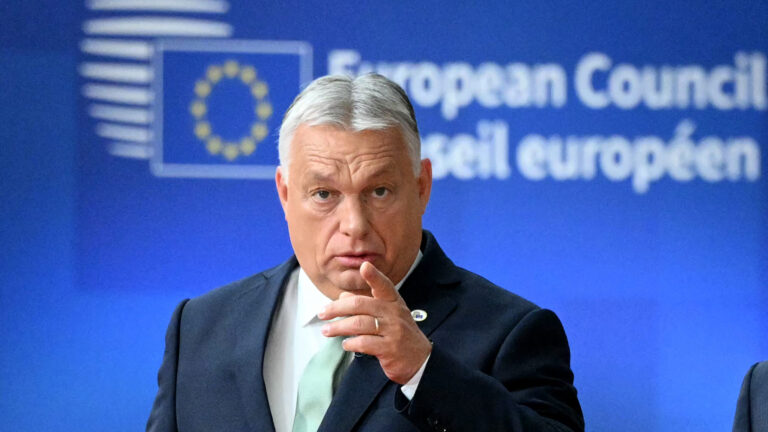In November 2013, Ukrainian President Viktor Yanukovych chose not to sign the EU–Ukraine Association Agreement, defying a strong mandate from the parliament to do so. His decision sparked mass protests across Ukraine, which quickly escalated into violent clashes with authorities. After months of demonstrations, and under pressure from Western leaders, Yanukovych agreed to hold early elections but ultimately fled the country. Shortly thereafter, Russia annexed Crimea. The Euromaidan—named after Kyiv’s Maidan Nezalezhnosti (Independence Square), where the protests took place—became the largest mass demonstration in Europe since the regime changes in Eastern Europe.
Russia accused the United States of orchestrating the events, claiming that Washington was behind Yanukovych’s ouster. While there is no doubt that the US wielded significant influence over the Ukrainian opposition at the time—and some indications suggest close collaboration to support the protests and undermine the pro-Russian government—there is no conclusive evidence of direct US or broader Western interference.
An eerily similar scenario seems to be unfolding in Georgia, where protests have been ongoing for weeks against the ruling Georgian Dream (GD) party’s decision to suspend EU membership negotiations until 2028. The protesters, along with Brussels and Washington, are urging the government to return to the European path. Prime Minister Irakli Kobakhidze’s government appears to be one misstep away from sharing the fate of Viktor Yanukovych.
Brussels Calls Electoral Fraud
While the parallels are striking, there are notable differences between the 2014 crisis in Ukraine and the current situation in Georgia. To understand these distinctions, we must go back to the end of October, when parliamentary elections were held in the South Caucasus state. The conservative Georgian Dream (GD) party, which has been in power for 12 years, emerged victorious, and Irakli Kobakhidze—who maintains good relations with Hungarian Prime Minister Viktor Orbán—was re-elected as Georgia’s Prime Minister.
This outcome, unsurprisingly, did not sit well with either the European Union or the Democratic leadership in the United States. Brussels and Washington have long viewed Tbilisi’s efforts to preserve its national identity, sovereignty, and conservative values on the road to EU membership with scepticism. European Commission President Ursula von der Leyen called for an independent inquiry into the elections, a sentiment echoed by the foreign ministers of 13 EU member states in a joint statement expressing deep concern over the situation in Georgia.
Referring to the findings of international election observers, the statement condemned the ‘violations of international standards for free and fair elections’ and noted that the foreign ministers shared the observers’ concerns. It further demanded ‘an impartial inquiry into complaints and remedies for the violations established’.
Observers Claim No Fraud
However, upon reviewing the observers’ report, there seems to be no conclusion about the election being not free or unfair. Some observers, however, did highlight the need to address issues such as the high polarization of the political and media landscape and the ‘uneven playing field’.
Scanning through the report and expert statements, the cited ‘irregularities’ appear to reflect challenges common in many other democracies, including Western countries. These include deepening political divisions (a trend seen across Europe and overseas), amendments to electoral laws (a very common practice, akin to gerrymandering in the US), and the stigmatization and demonization of political opponents (similar to the tactics use by liberal-progressive mainstream against sovereigntist forces in Europe). The report also criticizes the lack of gender diversity among candidates, noting the underrepresentation of women in Georgian politics.
‘Observers declined to declare the election was rigged, despite repeated questions from journalists’
Despite these points, the report acknowledges several positives: the elections offered voters a wide choice, the media landscape was diverse, the election administration efficiently managed the process, and the legal framework was deemed adequate for holding democratic elections. Notably, during the press conference presenting the report, observers declined to declare the election was rigged, despite repeated questions from journalists—much to the disappointment of the opposition.
During his visit to Georgia after the elections, Orbán criticized Brussels’s response describing it as consistent with recent years’ experiences. ‘European politics has a manual…, a handbook: if liberal parties win, there is democracy; if conservative parties win, there is no democracy,’ Orbán stated, while encouraging Georgians not to place too much importance on these debates. He added that the Georgian people had made a pro-European decision.
Path to the EU
Georgia enjoys the closest ties with the European Union among the three post-Soviet republics in the South Caucasus. While Azerbaijan and Armenia have been engaged in a decades-long, intermittent conflict, Georgia had managed to progress without significant obstacles—until 2008, when Russia invaded its northern provinces of Abkhazia and South Ossetia, later declaring them breakaway republics that persist to this day.
In 2013, under the Georgian Dream government, the Georgian parliament passed a resolution decisively supporting integration into the EU and NATO, reflecting a strong social consensus. The South Caucasus nation formally applied for EU membership in June 2022, alongside Ukraine, and was officially granted candidate status in December 2023.
According to a November poll, an overwhelming 81 per cent of Georgians trust the EU, and 87 per cent believe the country has good relations with Brussels—representing a 12-percentage-point increase compared to 2016.
Brussels’ Three Problems
Then how did we arrive at the chaotic and precarious situation Georgia faces today? Brussels has three primary issues with the Georgian government: first, the Law on the Transparency of Foreign Influence, adopted in May; second, the anti-LGBTQ law passed in early October; and third, the government’s stance on Russia. Due to serious geopolitical considerations—especially in light of Ukraine’s fate—Georgia has opted not to take a completely hostile approach to Russia and has instead called for peace in the ongoing war in Ukraine.
The foreign influence law, in short, requires organizations and NGOs that receive at least 20 per cent of their funding from foreign sources to register as ‘agents of foreign influence.’ While controversial in Brussels, such measures are not unprecedented; many nations with a strong emphasis on sovereignty employ similar mechanisms. For instance, a comparable law has been in place in the United States for nearly a decade.
The so-called anti-LGBTQ law bans gender reassignment surgeries and same-sex marriage. Given that Georgians are an old Christian nation, it is unsurprising that they wish to protect Christian values and resist LGBTQ propaganda. However, EU’s top diplomat at the time, Josep Borrell, described the law as a measure that could derail Georgia’s aspirations to join the European Union.
How can Brussels address these ‘problems’? Lacking direct authority over Georgia’s legislature, it resorts to political pressure on the Georgian government. If that fails, it seeks ways to put its allies in power—this is similar to what they doing against the Hungarian government as well.
Currently, Georgia is in the pressure phase, which has reached its peak in recent weeks. Despite this, the government has managed to stand firm. Following the adoption of the foreign influence act on 24 June, the EU de facto halted the country’s accession process—this will be important later—, meanwhile, Washington imposed sanctions on Georgian government officials.
For a month after the elections, Brussels, the liberal-progressive bloc of the European Parliament (EP), and Washington kept Georgia’s democratic credentials under scrutiny. The EU, following the US example, even floated the possibility of sanctions, while the EP’s resolution on 28 November calling for new elections in the country. In response, the Georgian government announced it would suspend its EU accession process until 2028—a process that, in practice, had already been frozen by the EU.
Assisting a Coup d’État?
Upon hearing the news, crowds took to the streets of Tbilisi, demanding the continuation of EU accession efforts and blaming the government for the situation—despite the fact that it was essentially Brussels that pushed the fundamentally pro-EU GD into this predicament. With condemnatory statements from EU and US officials, punitive measures imposed on various Georgian officials (though vetoed at the EU level by Hungary and Slovakia), and a population stirred up by Western rhetoric, the Georgian government finds itself in an extremely difficult position.
Hungarian Minister for Foreign Affairs and Trade Péter Szijjártó, after vetoing the proposed sanctions, emphasized that ‘sanctioning a country because it has just decided to postpone accession negotiations until 2028 is not an option.’ Hungary has proven to be a strong and reliable ally for Georgia, but withstanding this level of pressure remains a significant challenge.
Meanwhile, the EP this week invited Georgian opposition leader and President Salome Zourabichvili—whose mandate expires on 29 December, though she has insisted on remaining in office until the next elections—to address its plenary session. In her speech, Zourabichvili called on Europe and the West to provide sustained political support for ‘Georgia’s democratic voices, advocate for justice and the release of political prisoners, and firmly back calls for new elections.’ She also called the EU to help her staying in power after her mandate expires.
‘The leader of the Georgian opposition is, in effect, asking the EU to assist in orchestrating a quasi-coup d’état against the ruling party’
The leader of the Georgian opposition is, in effect, asking the EU to assist in orchestrating a quasi-coup d’état against the ruling party—despite the fact that observers deemed the recent elections democratic and free. Perhaps unsurprisingly, his speech was met not with silence or shock but with applause from the majority of MEPs.
It is worth noting that Zourabichvili is a former French citizen and previously served as France’s ambassador to Georgia, giving her extraordinary networking connections in Western political circles.
Is There a Way Back?
The demonstrations since 28 November have regrettably turned violent, leading to several arrests. According to media reports, more than 100 demonstrators have been injured in clashes with authorities, and some NGOs have alleged that arrested protesters were subjected to severe beatings. Police brutality has no place in a democracy and must be condemned and addressed to prevent the demonstrations from escalating further. At the same time, as Szijjártó pointed out after meeting his Georgian counterpart, there are extremist elements among the otherwise largely peaceful demonstrators. This is evidenced by a 4 December report citing 143 police officers injured while securing the protests.
If we follow the Euromaidan timeline and accept the cyclical nature of history, Georgia’s government may find itself facing pressures similar to those that ultimately forced Yanukovych from power. However, there are key differences between the two situations. Under Georgian Dream’s rule, Georgia’s economy has performed well, with average incomes tripling, and per capita GDP and foreign investments doubling—contrasting sharply with the widespread corruption during Yanukovych’s tenure.
‘The West is no longer even attempting to conceal its objective: the replacement of Georgia’s legitimate government’
Furthermore, Georgia’s suspension of accession negotiations was not entirely voluntary; it was a reaction to the untenable conditions imposed by Brussels and the West. The government has not abandoned the EU path willingly; instead, it seeks to remain part of the integration process while preserving its sovereignty—something Brussels appears unwilling to allow.
Perhaps the most striking difference, however, is that the West is no longer even attempting to conceal its objective: the replacement of Georgia’s legitimate government. Both Brussels and Washington are going all-in, much like they do in Romania as well.
One can only hope that the Georgian government and society can find a way to reconcile these tensions and return to the European path without further turmoil. If not, history has already shown us what follows Euromaidan...
Related articles:

